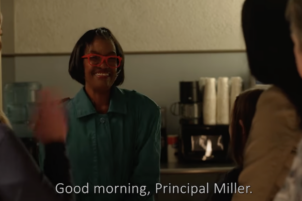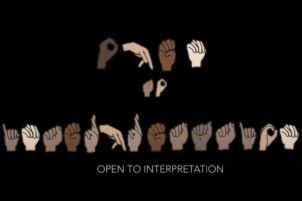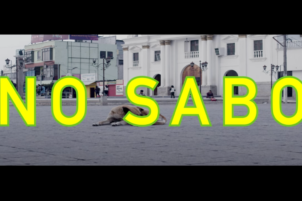Los Angeles, Feb 18 – On this year’s Oscar Short List for Best Live Action Short Film is Feeling Through. Written and directed by Doug Roland, Feeling Through made history as the first film to star an actor, Robert Tarango, who is both deaf and legally blind.
Taking place over the course of a single night, Feeling Through centers around an unhoused teenager named Tereek, played by Steven Prescod, as he struggles to find shelter. Through his hazardous sojourn on the streets of New York City, Tereek finds a deaf-blind man who needs assistance finding his bus stop. Although he is initially reluctant, Tereek decides to help the man and embarks on a journey that will mark him indelibly.
The unhoused Tereek exists on the margins of society, drifting from couch to couch and hoping he can protect himself from the elements one night at a time. Understandably, his precarious existence results in a guarded demeanor. That is, until he meets Artie, who stands on the sidewalk with a sign indicating his need for assistance.
Apprehensive, Tereek does not know how to help the man. After Tereek taps him, Artie extends his elbow, clearly asking for physical guidance. Tereek is flummoxed, but nevertheless guides Artie. As the duo make their way to Artie’s bus stop, they develop a friendship through adaptive communication. While this does not come naturally to Tereek at first, the night of trust building causes Tereek to open both his mind and his heart.
The short is an examination of overlooked populations and the act of coming together to help one another. Communication is the ultimate theme, as the two people collectively overcome communicative and social estrangement.
The short was inspired by a real-life encounter Roland had in New York City with a deaf-blind man named Artie. Roland attempted to contact Artie before production began but was unable to find the man. Wanting to approximate the verisimilitude of that fateful night, Roland sought out those most familiar with deaf-blind culture and experiences.
A nation-wide casting call was held to find an actor to portray the role of Artie. Many talented deaf-blind individuals auditioned, but Roland’s leading man was closer than he expected.
Robert Tarango worked as a cafeteria assistant at the Helen Keller National Center for Deaf-Blind Youths and Adults. During auditions, Keller Center faculty suggested Tarango apply for the role. Tarango’s immediate charisma was palpable and Roland knew he had found his Artie.
Authentic portrayal was of the utmost importance to the cast and crew. Roland worked with the Keller Center to learn how to properly choreograph Tactile American Sign Language and Print-on-Palm communication. Prescod and Tarango spent hours rehearsing their on-camera interactions. Their dedication to their craft is apparent, as this chemistry shines through in their performances.
Because working with deaf-blind talent was an unprecedented undertaking, unforeseen production challenges required creative accommodations. For example, because most of the scenes take place at night, there was not ample lighting to facilitate Tarango’s communication. Interpreters took turns illuminating the surrounding area so Tarango could receive directions.
“Having Robert be a part of this wasn’t a challenge,” Roland said in an interview about the importance of working with Tarango to make the film a success. “He made the film what it is.”
Feeling Through is an important piece of disability representation in cinema. Growing up, Tarango idolized Hollywood’s leading men of yesteryear and now he himself is inserted into that storied tradition as Feeling Through moves on through the Academy’s award selection process. Tarango is a trailblazer and hopefully, his remarkable performance will be the catalyst for others, deaf-blind or otherwise, to chase their dreams.
Through Feb. 25, you can catch Feeling Through at the 2021 Slamdance Film Festival.








What a touching, enlightening and at times funny short film. Tarango is a natural acting talent, and both he and Prescod shine a light on the deep connections that can be made through sincere human communication, no matter the form that communication takes or the apparent differences between the people communicating. It’s almost as if whatever differences they have between them–one white, one Black, one disabled, the other not, one middle aged, the other young–all those “differences” collapse and disappear through that hug on the bus. They’re just two human beings connecting and caring about one another. What a great film!
Thanks for your fine article. I enjoyed the movie and appreciated the documentary about the making of the film, too.